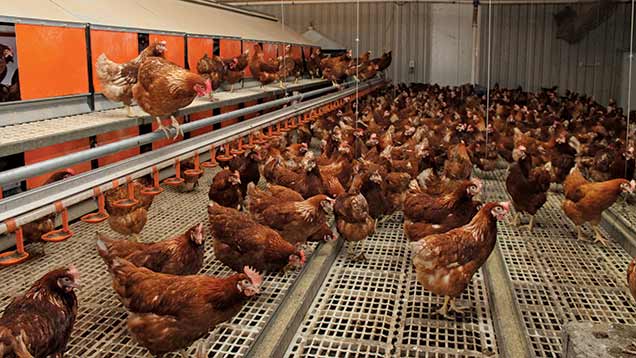Poultry farmer paid £18,000 after birds scared by MoD choppers

A chicken farmer received more than £18,000 in compensation after low-flying helicopters scared his birds from laying eggs.
The farmer, from Ninfield, Sussex, was handed £18,708 from the Ministry of Defence (MoD) after he claimed his birds stopped laying because they were frightened by the loud noise of low-flying Apache helicopters.
Four other poultry farmers who claimed their egg production suffered because of noisy military helicopters were also handed money from the MoD, the Daily Mail reported.
See also: Two-thirds of flocks suffer smothering, survey shows
Other poultry farmers claimed their birds were so frightened by loud MoD helicopter noises that they trampled one another to death.
Meanwhile, the MoD paid £42,700 compensation to a farmer in County Tyrone, Northern Ireland, whose cows died after being scared by a Puma helicopter, and £20,000 after an injured horse lost its foal in Dyfed, Wales.
Figures released under a Freedom of Information Act request showed the MoD paid out £1.1m in compensation last year due to low-flying incidents.
Mark Williams, chief executive of the British Egg Industry Council, said: “Birds can be scared by low-flying aircraft, hot air balloons and other sudden noises so we would encourage all of our members to make local Ministry of Defence sites aware that they are nearby.”
An MoD spokesman said: “The MOD takes the issue of safe low flying extremely seriously and understands that military low flying can be noisy and unpopular but it is an essential part of operational training.
“The MoD is constantly striving to ensure that such disturbance is kept to an absolute minimum and that the burden of noise pollution is as evenly distributed as possible throughout the UK Low Flying System as a whole.
“In order to ensure that military low flying is as accountable to the public as possible, the MoD provides the Low Flying Complaints Enquiry Unit, located at RAF Wittering, which allows the public to report low-flying incidents which have raised concern.”
